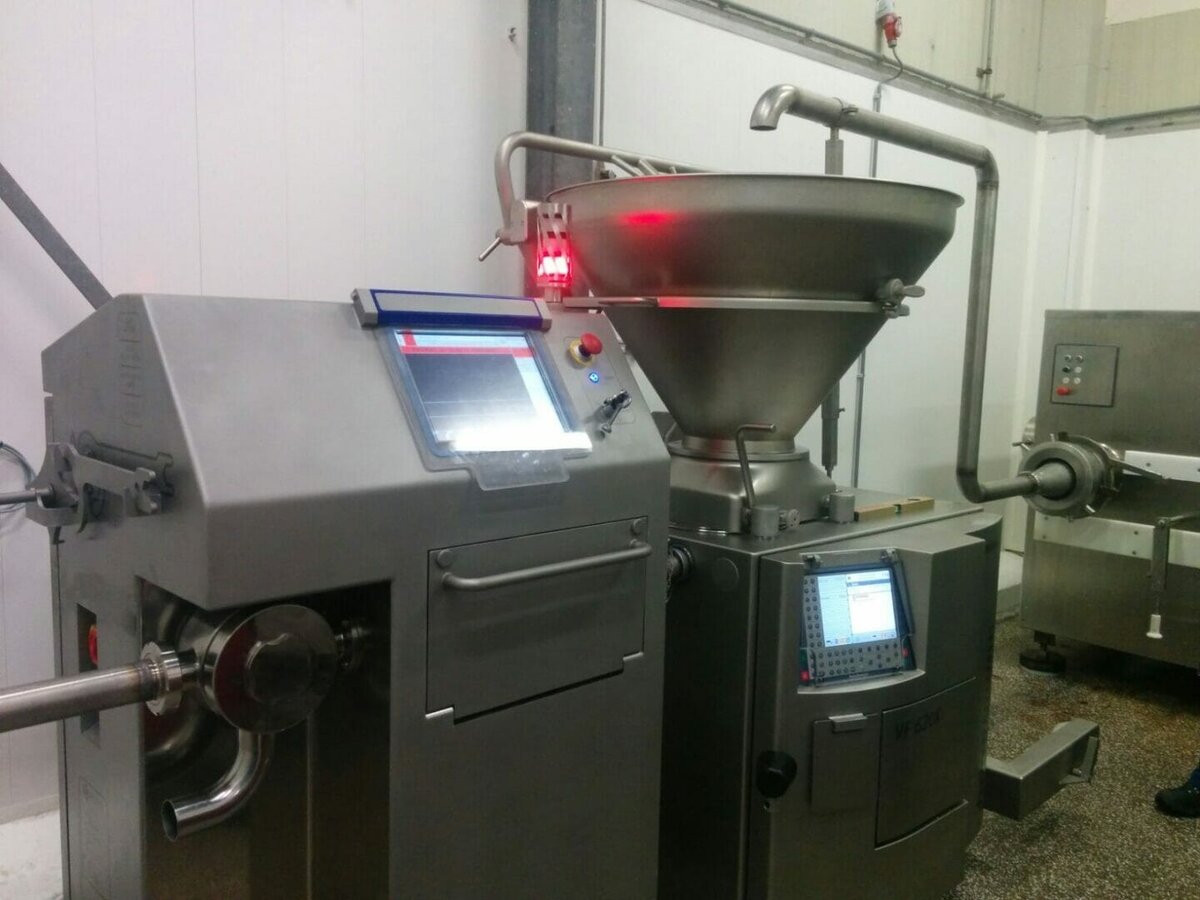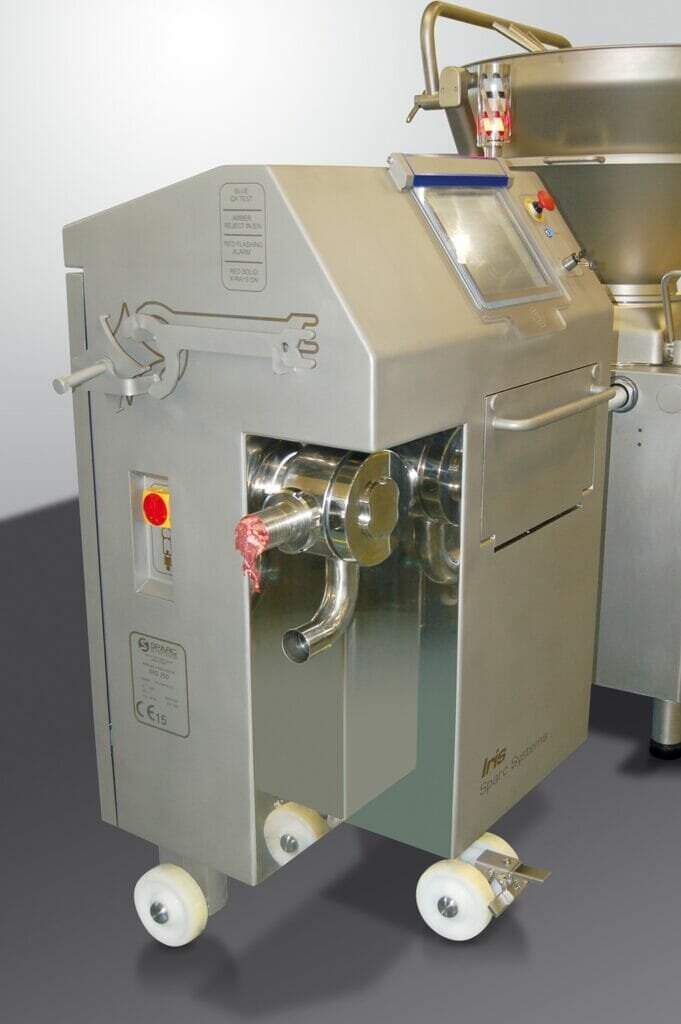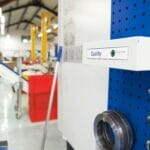Based in The Netherlands, Esro Food Group is just one European processor that in recent years has extoled the benefits of its x-ray pipeline system designed by Sparc Systems.
Prior to the installation, the processing plant manually conducted quality searches for foreign bodies. With the Iris x-ray pipeline system from Sparc Systems, the family owned business has automated the process, helping to guarantee its premium reputation by finding and efficiently removing contaminants.
Dutch manufacturer Jansen Control Systems supplied the customised installation, creating a complete line comprising the x-ray pipeline, fitted with stainless steel piping and mixer controls.
Being an x-ray system, the Iris contamination detection machine inspects for bones, teeth, metal, glass, ceramics and high-density plastic in raw meat materials processed at Erso’s plant in Nuenen.
The specialist beef manufacturer specifically opted for the Iris pipeline for its compactness and robustness, in addition to its hygienic, easy-to-clean design and user-friendly operation. Another factor was its ability to be networked for the QA manager to access reports.
European Sales Manager at Sparc, Charlie Graham recalls that ease of cleaning was the overriding influence. He explains: “Pipelines can be inherently difficult to sanitise. The Iris x-ray is completely different to anything else on the market as has a magnetic centre piece which operatives can literally unscrew, pull out, clean and reinsert.” It’s also one of the only inspection pipeline systems Charlie has encountered to-date with a three-way electric valve that allows test pieces can be inserted into the product flow to provide a true performance reading.
Depending on the application, the Iris pipe x-ray inspection system can detect metal down to 0.5mm. It also utilises a fully integrated, servo actuated rotary reject valve to provide accurate and repeatable reject system performance. “This makes it fast and precise. Even though the Iris x-ray matches the speed of the pump, only a small amount of contaminated product is ever rejected,” notes Charlie.
The high resolution of the metal ceramic X-ray tubes allows the Iris to identify small pieces of foreign material including metal, bone, stone and glass in the production stream. Available in three models (1½, 2½ and 3 inch), the Iris can be easily integrated into an existing rigid or flexible piping system or placed behind a vacuum filling machine.
“Sparc’s Iris x-ray system is designed to specifically address the unique requirements posed by product flowing through a pipe, as well as helping manufacturers comply with stringent HACCP protocols and food safety requirements,” adds Charlie.
Patrick van de Berg, production manager at Esro, has been pleased with the outcome. “Jansen advised us on the total process and delivered a high-quality x-ray system which has proved reliable,” he commented.
Average throughput for muscle meats, slurries, semi solids and fluids is up to 14,000 kg/h for meat and poultry applications.
- The Iris is designed to specifically address the unique requirements posed by product flowing through a pipe
- The unique magnetic centre piece of the Iris can be hygienically removed for cleaning
- Sparc’s automated X-ray solution has helped The Esro Food Group comply with stringent food safety requirements while safeguarding their reputation








